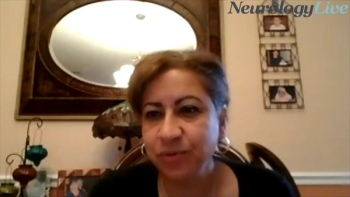
The pulmonologist at Penn Medicine provided an evaluation on whether patients with insomnia receive optimal care, and which treatments have proven to be most effective. [WATCH TIME: 3 minutes]

The pulmonologist at Penn Medicine provided an evaluation on whether patients with insomnia receive optimal care, and which treatments have proven to be most effective. [WATCH TIME: 3 minutes]
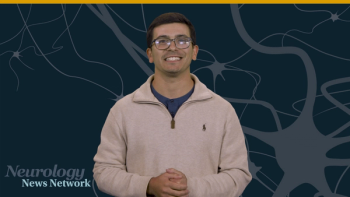
Neurology News Network for the week ending September 17, 2022. [WATCH TIME: 4 minutes]
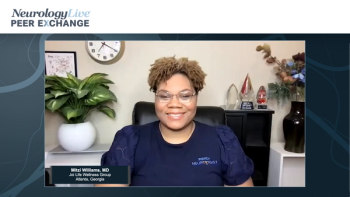
Mitzi Williams, MD, leads a discussion on the impact of the disease on quality of life for patients with NMOSD and their families.
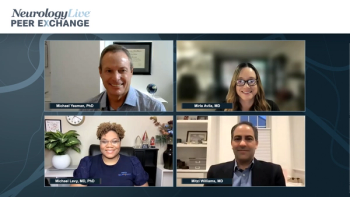
Mirla Avila, MD; Michael Levy, MD, PhD; and Mitzi Williams, MD, share the clinical presentation and progression of NMOSD among various racial and ethnic groups and highlight the effects of socioeconomic disparities and personal barriers on access to proper care.
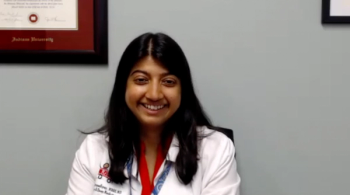
The assistant professor of clinical pediatrics at Indiana University School of Medicine, and the chair of the AASM’s Artificial Intelligence in Sleep Medicine Committee, spoke about the ability of AI algorithms as tools in clinical care. [WATCH TIME: 3 minutes]
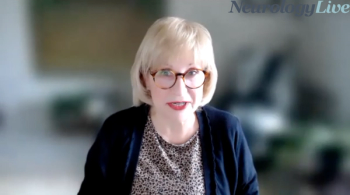
The professor of pediatrics at Case Western University discussed the complexities and negative effects for children drastically change their sleep schedules as school begins. [WATCH TIME: 3 minutes]

An overview of the shifting landscape of antiseizure medication and various neurostimulation devices is shared by the clinical assistant professor of neurology in the Comprehensive Epilepsy Center at NYU Langone Health. [WATCH TIME: 5 minutes]
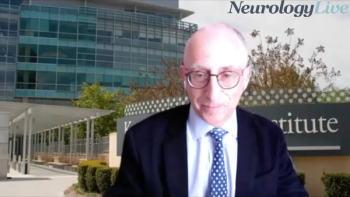
The director of medical outpatient services at the Kennedy Krieger Institute discussed the long-term effects of the updated developmental milestone guidelines and the need to judge children based on the 75th percentile. [WATCH TIME: 7 minutes]
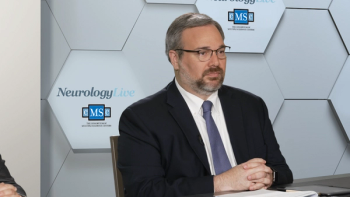
Ahmed Obeidat, MD, PhD; Benjamin Greenberg, MD; and Hesham Abboud, MD, comment on the need for more inclusive clinical trial patient enrollment criteria, highlighting underserved patient populations.
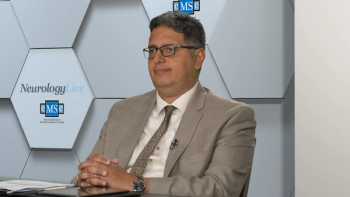
Dr Hesham Abboud shares his opinion on the clinical practicalities of BTKi utilization in patients with multiple sclerosis.
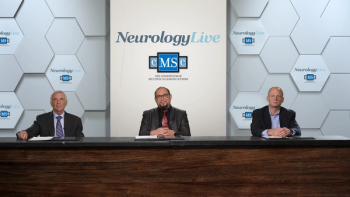
Ahmed Obeidat, MD, PhD; Randall Schapiro, MD, FAAN; and Jeffrey Wilken, PhD, share their hopes for the future of multiple sclerosis treatment and discuss unmet needs and novel targets.

Experts in neurology discuss practical considerations for the management of multiple sclerosis, tying in the importance of a collaborative care team and patient involvement.
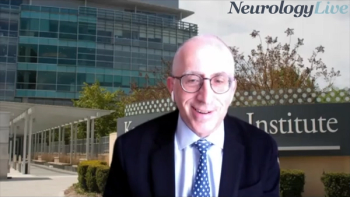
The director of medical outpatient services at the Kennedy Krieger Institute discussed how the clinical community has approached children who fail to reach developmental milestones in part because of poor home lifestyle. [WATCH TIME: 3 minutes]
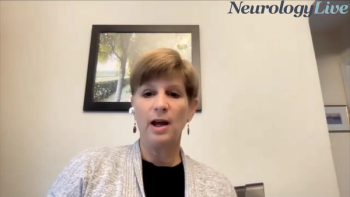
The associate director of the Sleep Center at Children’s Hospital of Philadelphia detailed the similarities and differences in how sleep disorders are viewed between children and adults. [WATCH TIME: 4 minutes]
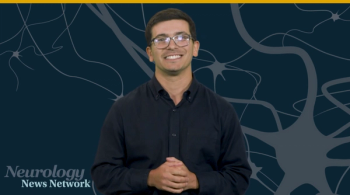
Neurology News Network for the week ending September 10, 2022. [WATCH TIME: 4 minutes]

Drs Mitzi Williams, Mirla Avila, and Michael Levy comment on the differences in pathogenesis in various patient populations affected by NMOSD as it relates to genetics, comorbidities, and immune tolerance.

Michael Levy, MD, PhD; Mitzi Williams, MD; and Mirla Avila, MD, examine the genetic, behavioral, and cultural determinants of NMOSD prevalence and incidence.

The founder and executive director of the Sumaira Foundation offered her perspective on the patient journey in NMOSD and the vital need to increase awareness [WATCH TIME: 9 minutes]

The assistant professor of clinical pediatrics at Indiana University School of Medicine, and the chair of the AASM’s Artificial Intelligence in Sleep Medicine Committee, discussed the potential of AI to progress care paradigms in insomnia. [WATCH TIME: 2 minutes]
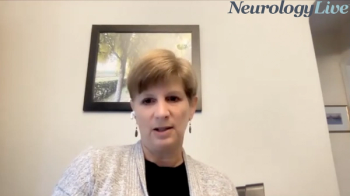
The associate director of the Sleep Center at Children’s Hospital of Philadelphia provided context on the ever-expanding world of technology and the harmful effects it can have on children’s sleep. [WATCH TIME: 3 minutes]

The assistant professor of clinical pediatrics at Indiana University School of Medicine, and the chair of the AASM’s Artificial Intelligence in Sleep Medicine Committee, spoke to the new pilot program to certify sleep stage scoring AI software. [WATCH TIME: 3 minutes]
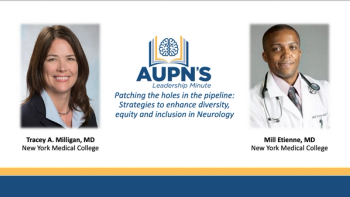
Episode 25 of the AUPN Leadership Minute features Tracey A. Milligan, MD, of New York Medical College; and Mill Etienne, MD, of New York Medical College. [WATCH TIME: 8 minutes]
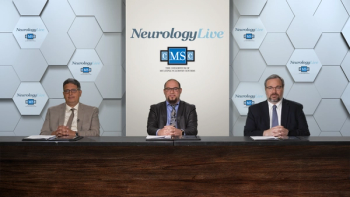
Experts in neurology discuss safety concerns and considerations with the use of BTKis in the management of patients with multiple sclerosis.

Hesham Abboud, MD, provides insight into the impact of the differnet biochemical compositions of the currently investigated BTKis and highlights on-going clinical trials.

The clinical assistant professor of neurology in the Comprehensive Epilepsy Center at NYU Langone Health shared an overview of the various neurostimulation devices that have made their way into the clinical care of seizure disorders. [WATCH TIME: 4 minutes]
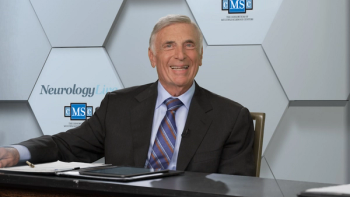
Randall Schapiro, MD, FAAN, and Jeffrey Wilken, PhD, examine the role that cognition and route of administration play in DMT selection in patients with multiple sclerosis.

Drs Ahmed Obeidat, Randall Schapiro, and Jeffrey Wilken, provide insight on how to initiate and frame conversations surrounding cognition and brain health with patients with multiple sclerosis.
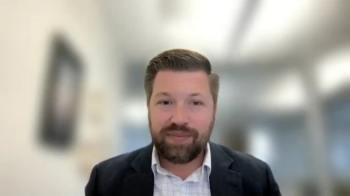
The internal medicine physician and chief medical officer and head of development at Pear Therapeutics offered his perspective on the current focus that is given to sleep in clinical care and the lack of education on interventions. [WATCH TIME: 2 minutes]
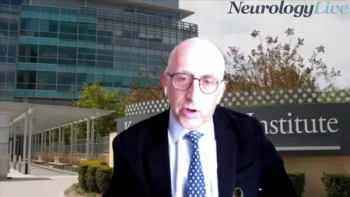
The director of medical outpatient services at the Kennedy Krieger Institute provided insight on how clinicians have typically assessed children who fail to meet milestones, and how that might change with new guidelines. [WATCH TIME: 3 minutes]
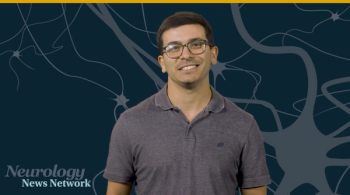
Neurology News Network for the week ending September 3, 2022. [WATCH TIME: 4 minutes]